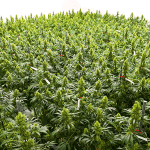Side effects and risks
In general, patients seem to tolerate medicinal cannabis well. However, medicinal cannabis use comes with side effects and risks. Typical side effects last a short time, are mostly benign, and resolve as tolerance builds. Side effects and risks mainly occur after the intake of high doses, or when medicinal cannabis is used in combination with other substances like alcohol or particular medications.
Side effects
A review of the effects of the medicinal use of cannabinoids indicated that the most frequent categories of adverse effects relate to respiratory, gastrointestinal, and nervous system disruptions. The common acute side effects of high doses of cannabis occur quickly after consumption, including:
- Dry mouth
- Redness of the eyes
- Heightened appetite
- Mild euphoria
- Reduction of alertness of the user, especially in the few hours directly after consumption.
- Increased heart rate
- Lowering of blood pressure and dizziness
In general, all side effects will slowly decrease and then disappear within a few hours. This depends upon the dose taken and mode of administration.
Side effects and risks: quality is vital
When cannabis of unknown, often illegal, origin is used, there is always a chance the product is contaminated with pesticides, growth enhancers, heavy metals or microbes. These contaminants are very damaging to the health of a patient. Bedrocan’s medicinal cannabis is quality controlled by an external, internationally certified laboratory. The results of the analysis of every batch are presented in a Certificate of Analysis (CoA). This level of quality assurance shows our products to be free of harmful contaminants. Moreover, using standardised medicinal cannabis products is critical to ensuring the same dose is taken each time. This reduces the risk of overdosing and consequently that of unwanted side effects.
Preventing side effects and risks
Most unwanted side effects from the administration of medicinal cannabis may be prevented by adopting the following guidelines:
- Start with a low dose – it is better to take several small doses in a day
- Be patient and wait for the effects to appear
- Use the same (low) dose for several days, and monitor any side effects that may occur
- Increase the dose slowly – take plenty of time to increase until the optimal dose is found
- Be in a safe environment when initiating cannabis-based therapies (especially during the first administrations)
- Have a trusted person around for support during the initiation period
Side effects and risks: a special warning
Patients with a hereditary risk of psychosis or other psychiatric conditions (e.g. schizophrenia or depression), and patients with cardiac/coronary conditions should avoid the use of cannabis and cannabinoids, as they may potentiate these conditions.
Risks
Just like any other medicine, medicinal cannabis is certainly not without risks. The most important risk factors are:
Psychosis
On rare occasions, cannabis use can induce a state of psychosis in individuals with a genetic predisposition. As a result, patients with a (family) history of psychotic disorders, particularly schizophrenia and bipolar disorder, should be under careful psychiatric monitoring when using medicinal cannabis. Moreover, a short, acute psychotic like episode (involving anxiety and catastrophic thinking) is possible in the case of non-predisposed individuals, especially when very high doses of THC is taken.
Occasionally, new scientific reports appear on the effects of cannabis on risk of psychosis. However, a direct link between cannabis and psychosis has not yet been established. The discourse surrounds the question: does cannabis induce psychosis in otherwise totally healthy individuals, or does pre-existing genetic vulnerability for psychosis result in adverse outcomes from cannabis use?
Recent scientific studies into this matter suggest a small proportion of the population has genetic predispositions that increase the risk of developing chronic psychotic symptoms when using cannabis (as a medicine or otherwise).
Heart disease
Cannabinoids can have a strong, but temporary, effect on heart rate and blood pressure. Patients with a history of heart disease or receiving medication for heart disease should avoid their use, or only use cannabis under careful supervision by a medical doctor.
Pregnancy and lactation
The use of cannabis during pregnancy is likely to affect the development of the fetus. Because certain cannabinoids – including THC – are excreted in breast milk, the use of medicinal cannabis is also not advised while breastfeeding.
Liver disease
After cannabis administration, the liver is the main organ involved in chemically altering the cannabinoids as part of its function to process and excrete external substances by the body (metabolism). The effects of cannabis may therefore be significantly different in patients with a liver disease. Therefore, these patients should be monitored during initiation to ensure the dose taken does not exceed the liver’s capacity to metabolise.
Addiction
The evidence suggests that the risk of developing an addiction to cannabis when taken as a medicine is minimal. The recommended dose for medicinal use is often lower than that of a recreational user, and a medical professional should always be involved in medicating and monitoring the patient.
Patients should take particular care, however, if they have prior problematic substance use. High doses of medicinal cannabis, taken over long periods, may lead to dose escalation and misuse. The abrupt cessation (quitting) may then cause withdrawal symptoms, such as mild forms of restlessness, irritability, insomnia, vivid dreams, and decreased appetite.
Overdosing
The consumption of medicinal cannabis has not been shown to lead to life threatening adverse events, even at very high doses. However, an overdose of cannabis (THC) can result in a range of adverse effects, with high variability in tolerance between subjects. The most common adverse effect of overdosing a single dose of THC is anxiety, which, in some cases, may lead to mild acute psychotic states (panic attacks). In addition, increased heart rate and changes in blood pressure may occur.
Specifically, it is possible that a THC overdose will result in acute hypotension and/or tachycardia. In some cases, nausea and vomiting and diarrhea may be observed as well. That aside, impaired executive function and motor control may lead to feelings of confusion, depersonalisation, loss of control, or even helplessness. Also reddened eyes and a dry mouth may be experienced as very unpleasant to some individuals. Most adverse effects will spontaneously resolve, usually within a few hours, when serum levels of THC fall.
There are suggestions that in a small number of cases THC is capable of precipitating psychosis, involving delusions and hallucinations. If these side effects occur, they seem to be rare, because they most likely require very high doses of THC administered over a prolonged period of time, or a pre-existing genetic vulnerability. However, there is enough reason to be cautious and communicate these risks in a fair and balanced way.
Driving and operating machinery
At therapeutic doses, cannabis may produce undesirable effects such as dizziness and drowsiness which may impair judgement and performance. Patients should not drive, operate machinery or engage in any potentially hazardous activity under the influence of medicinal cannabis or cannabinoid therapeutic products that contain THC.








